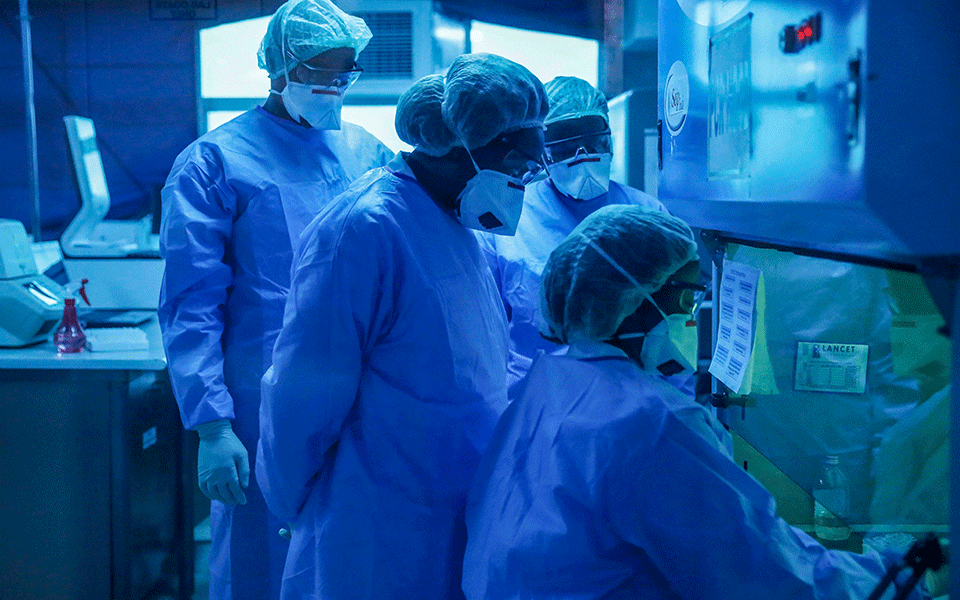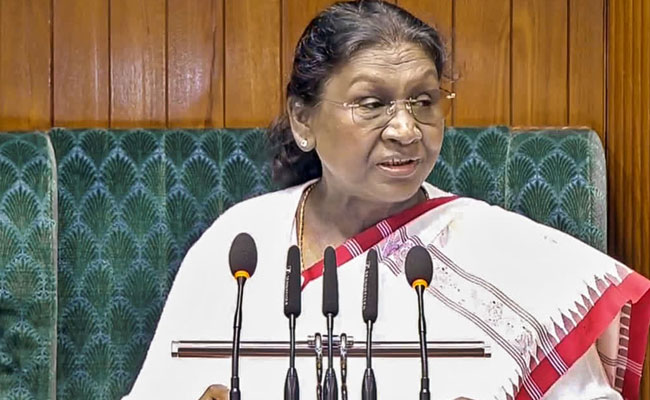Washington: Scientists, including one of Indian-origin, have developed a prototype of a rapid COVID-19 test using a simple-to-use portable instrument for reading the results with a smartphone in 30 minutes, an innovation that may enable point-of-care diagnosis without needing to send samples to a lab.
According to the study, published in the journal PNAS, the new technology may help overcome bottlenecks in supplies and laboratory personnel which have led to long waiting times for COVID-19 test results in several parts of the world amidst the ongoing pandemic.
"If such a device and test were available, we could test for COVID-19 at public events, auditoriums, large gatherings and potentially even at home for self-testing. The results could be sent back to the appropriate public health system for coordination," said Rashid Bashir, a professor of bioengineering at the University of Illinois, Urbana-Champaign in the US.
In one of the common methods to test for the novel coronavirus SARS-CoV-2, healthcare workers take a sample from patients with a long nasopharyngeal swab, which is put into a substance called viral transport media, and send to a lab for extracting, isolating, and multiplying the viral genetic material, the scientists said.
This viral RNA multiplication process, called RT-PCR, requires several temperature fluctuation cycles, specialised equipment, and trained personnel, said Brain Cunningham, another co-author of the study.
In the current research, the scientists used a simpler process to analyse the viral transport media, called LAMP, which bypasses the RNA extraction and purification steps.
"LAMP only needs one temperature -- 65 C -- so it is much easier to control," said Anurup Ganguli, the first author of the study.
"Also, LAMP works more robustly than PCR, especially when there are contaminants in the test sample. We can just briefly heat the sample, break open the virus, and detect the genetic sequence that specifically identifies SARS-CoV-2," Ganguli said.
When the researchers compared the LAMP assay with PCR, they found the results were in agreement, following which they documented the sensitivity and specificity of the LAMP test.
The scientists then incorporated the assay onto a small 3D-printed cartridge that has two input slots for syringes -- one for the sample-containing viral transport media, one for the LAMP chemicals.
Once the two syringe components are injected, they the react within the cartridge, the study noted.
"We use modern, high speed additive manufacturing to make these cartridges. The entire thing can be quickly scaled up to hundreds of thousands of tests," said Bill King, another co-author of the study from the University of Illinois.
"Production scale-up is typically the biggest obstacle for commercial applications of microfluidic cartridges, and we can overcome that obstacle using this new approach. Modern additive manufacturing is elastic and scalable, and it can be ramped up very quickly compared with legacy manufacturing technologies," King said.
According to the researchers, the cartridge can be inserted into a hand-held portable instrument with a heating chamber, which heats the cartridge to 65 degrees Celsius for the duration of the reaction, and a smartphone cradle is in place for reading the results.
In approximately 30 minutes, a positive result will emit fluorescent light, they said.
"The reader illuminates the liquid compartments with light from blue LEDs, while the phone's rear-facing camera records a movie of the green fluorescent light being generated," Cunningham explained.
The scientists noted that they are currently assessing whether the assay would work with saliva samples to eliminate the need for nasopharyngeal swabs.
Let the Truth be known. If you read VB and like VB, please be a VB Supporter and Help us deliver the Truth to one and all.
Hyderabad (PTI): The Aircraft Accident Investigation Bureau (AAIB) will probe the plane crash at Baramati airport that killed Maharashtra Deputy Chief Minister Ajit Pawar and four others on Wednesday.
The Learjet 46, operated by Delhi-based VSR Ventures, crash-landed at the airport. There were five people onboard, including the crew members, according to the aviation regulator DGCA.
A senior official told PTI that the AAIB will be visiting the crash site and it will be investigating the accident.
AAIB is responsible for classifying safety occurrences involving aircraft operating in Indian airspace as accidents, serious incidents, or incidents. It carries out detailed investigations into accidents and also suggests measures to improve safety.





